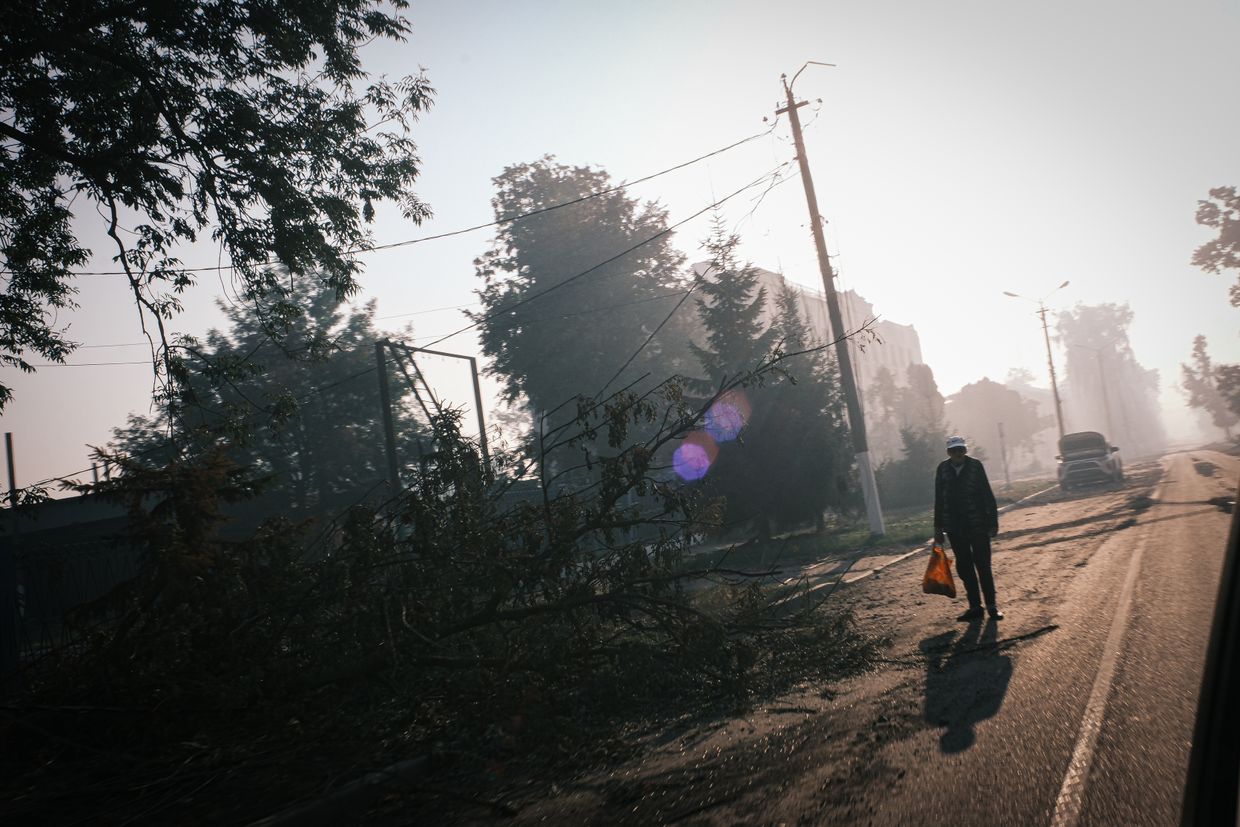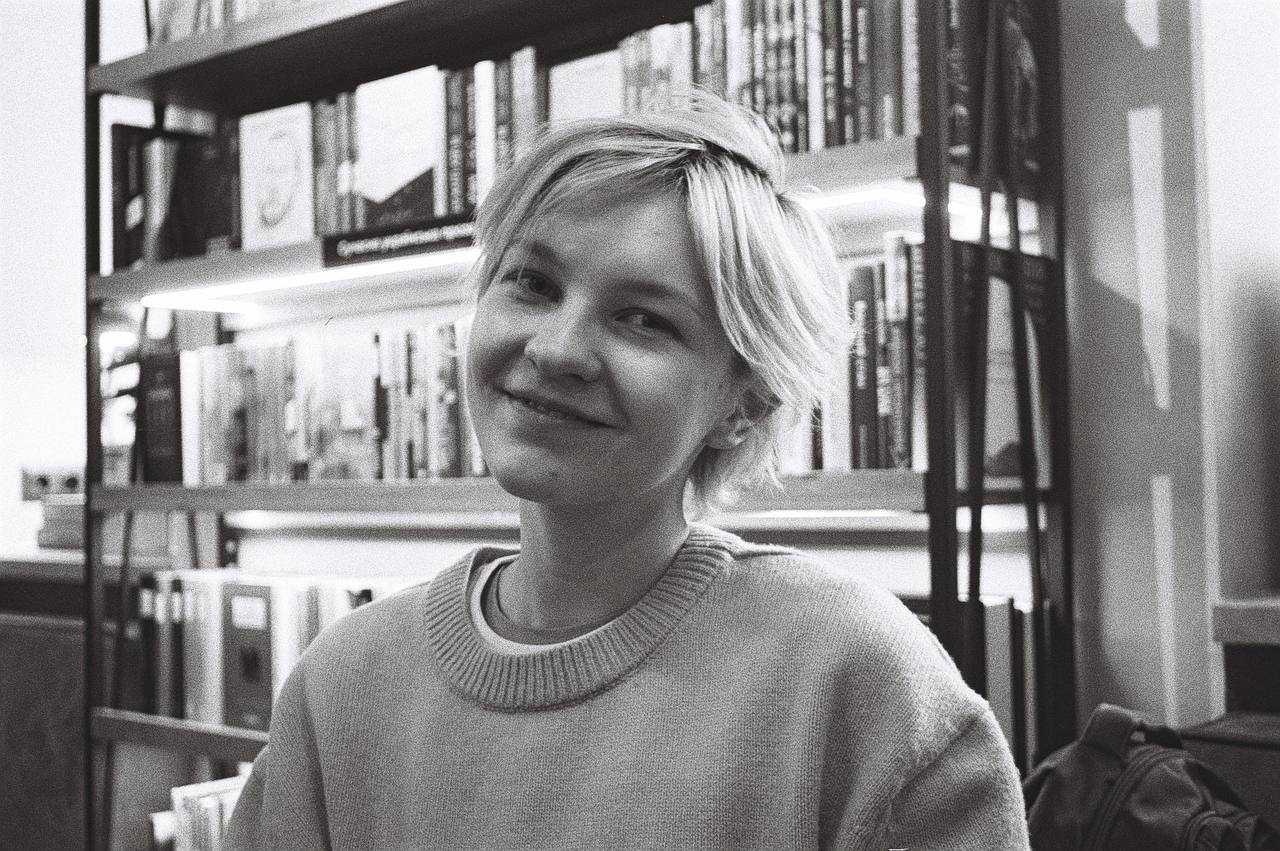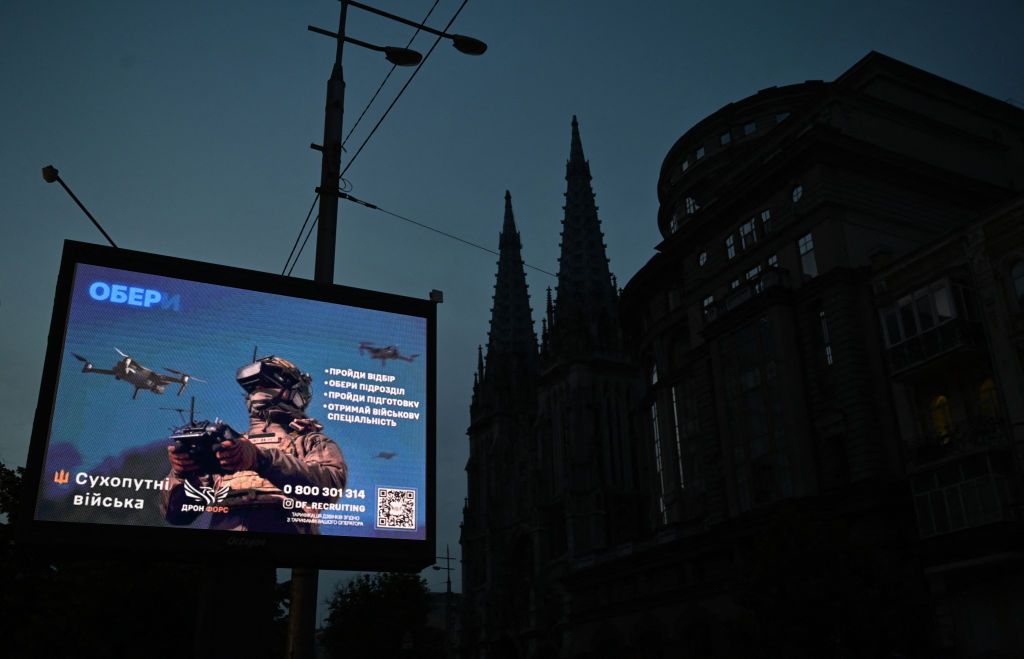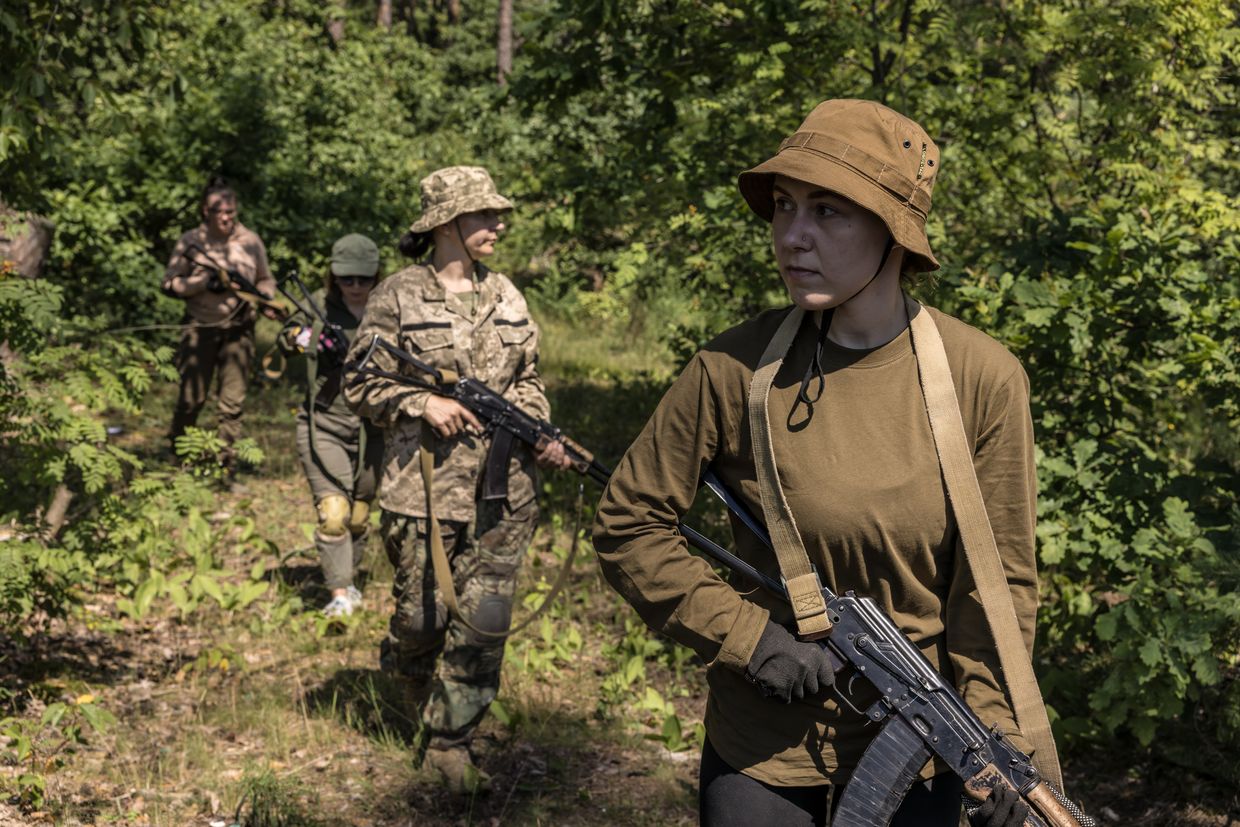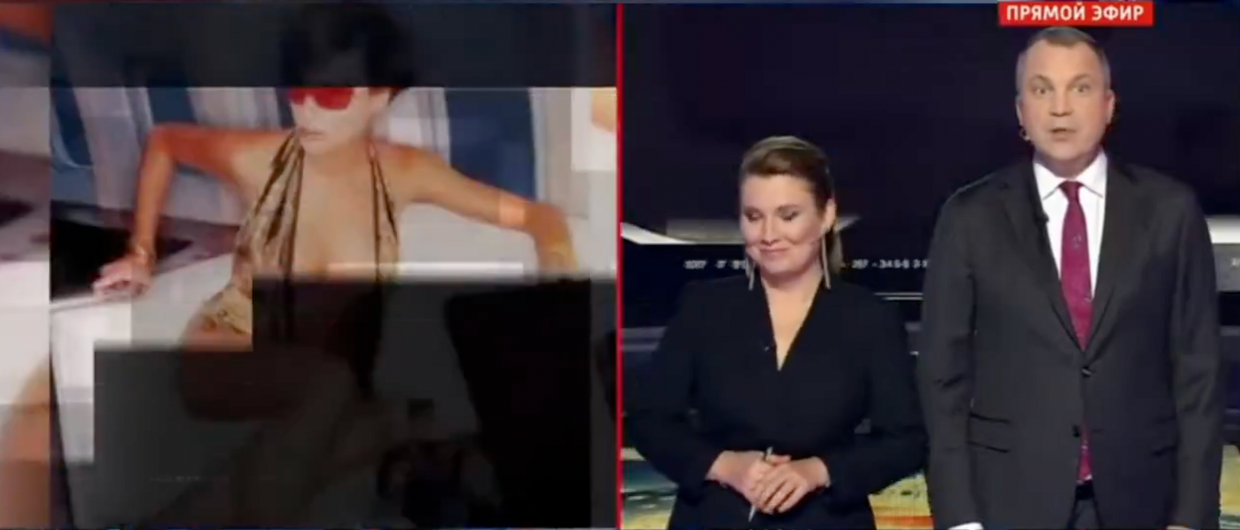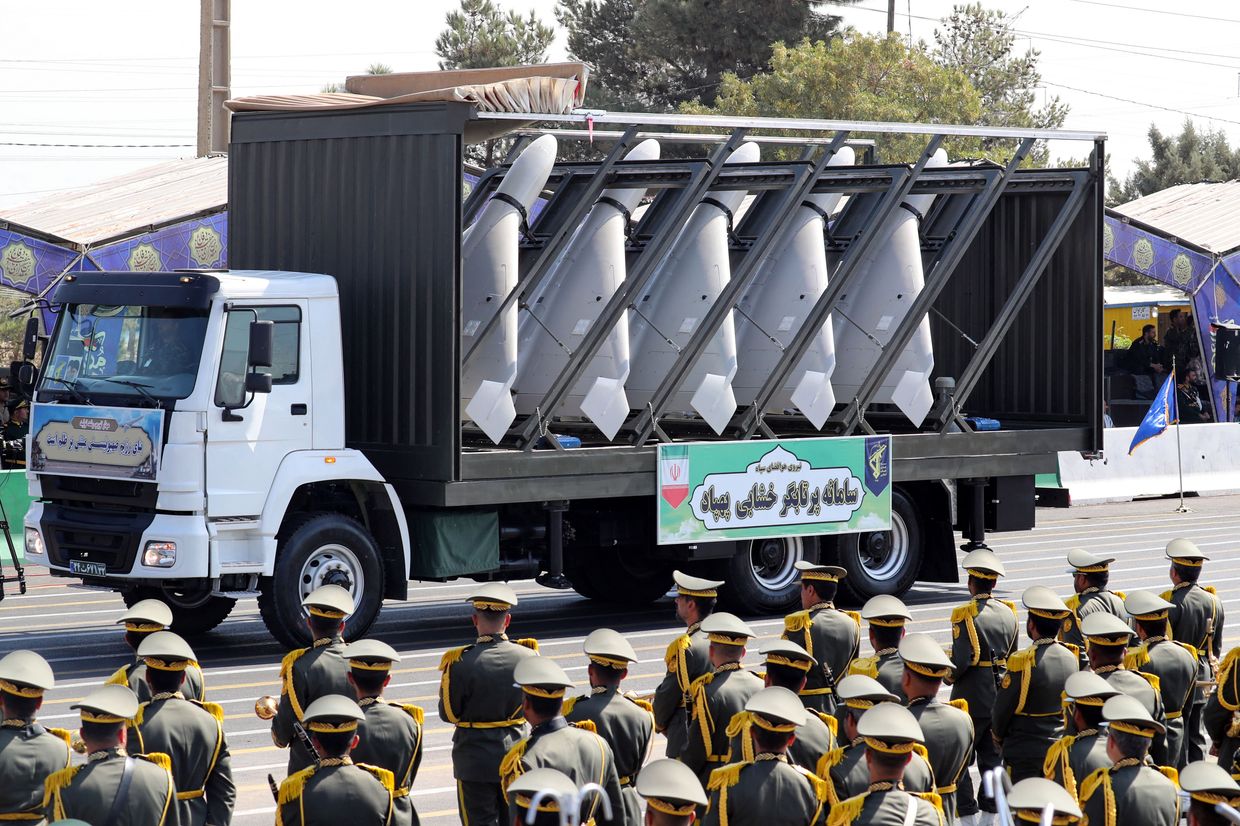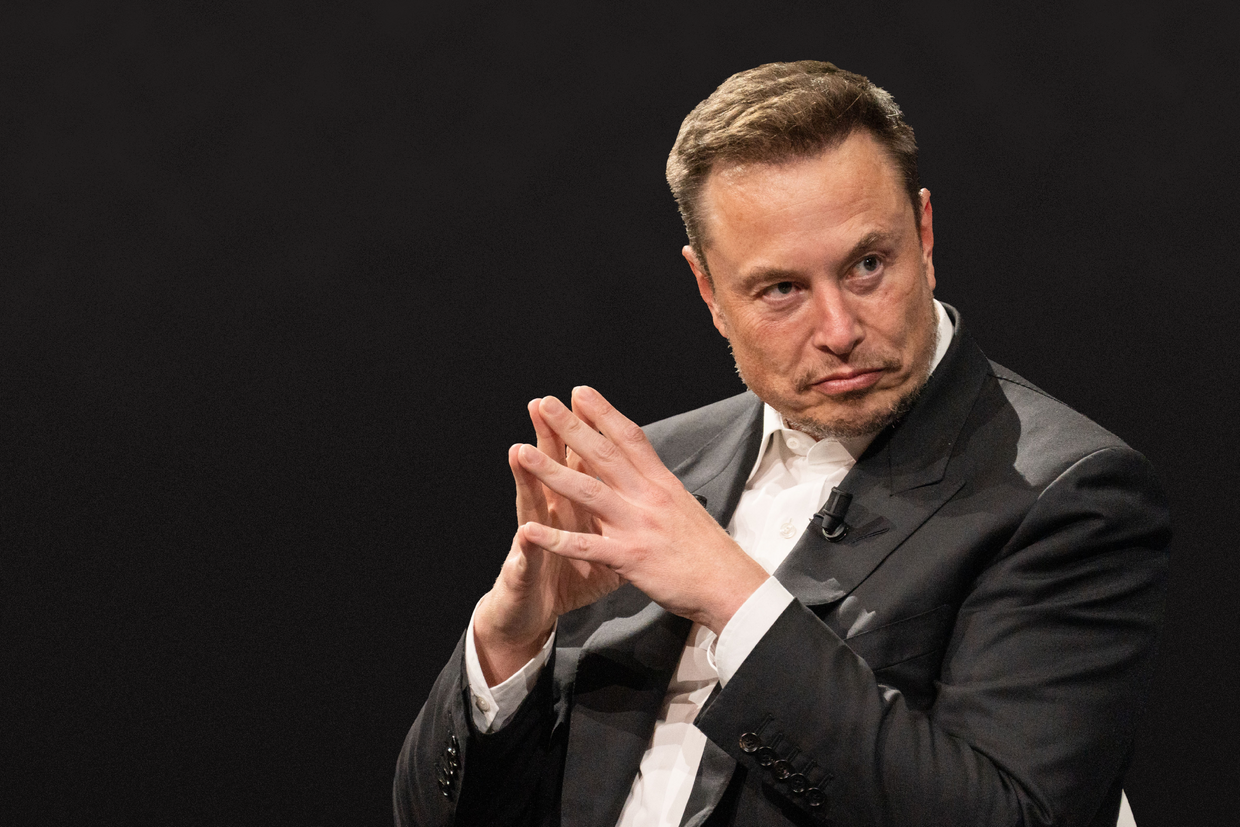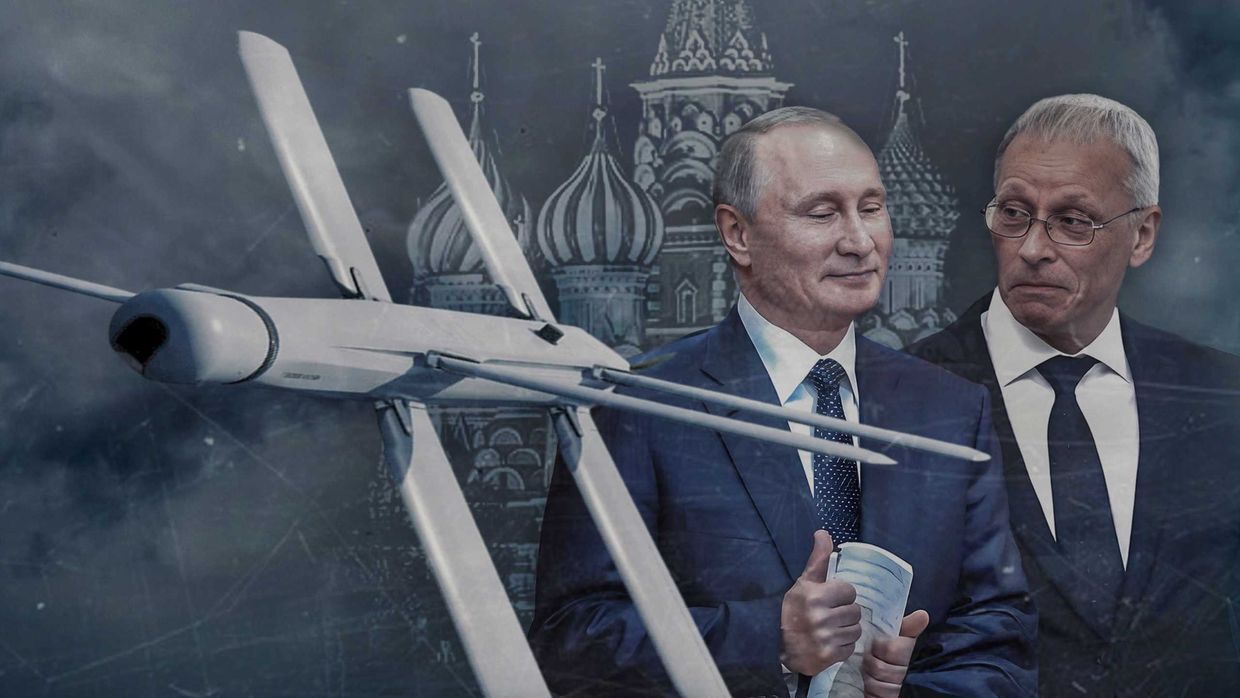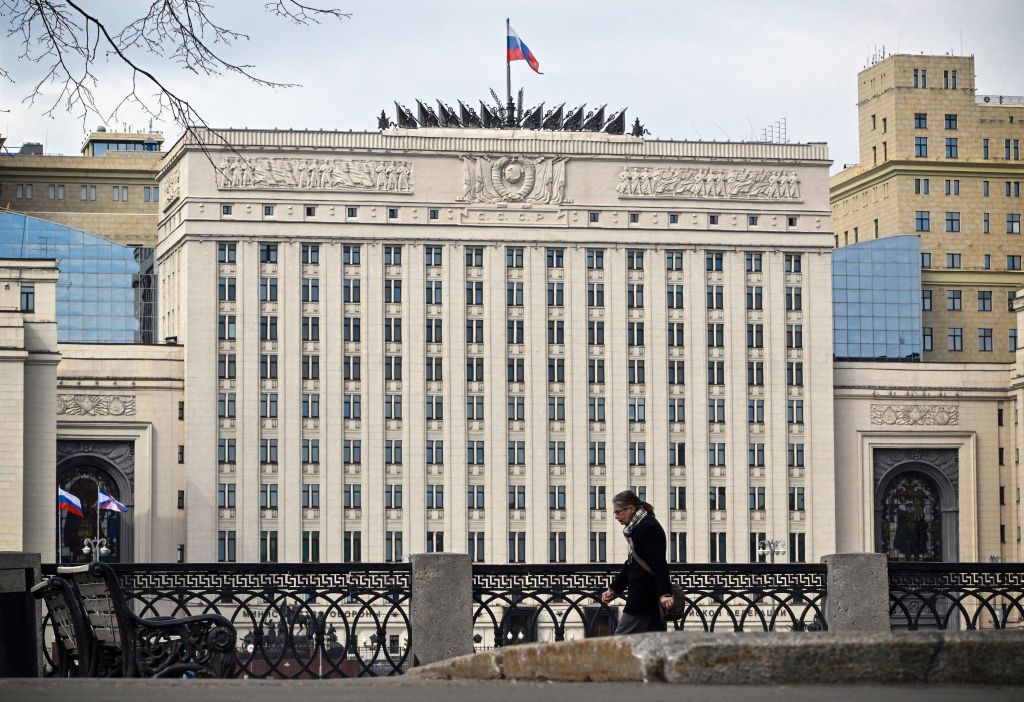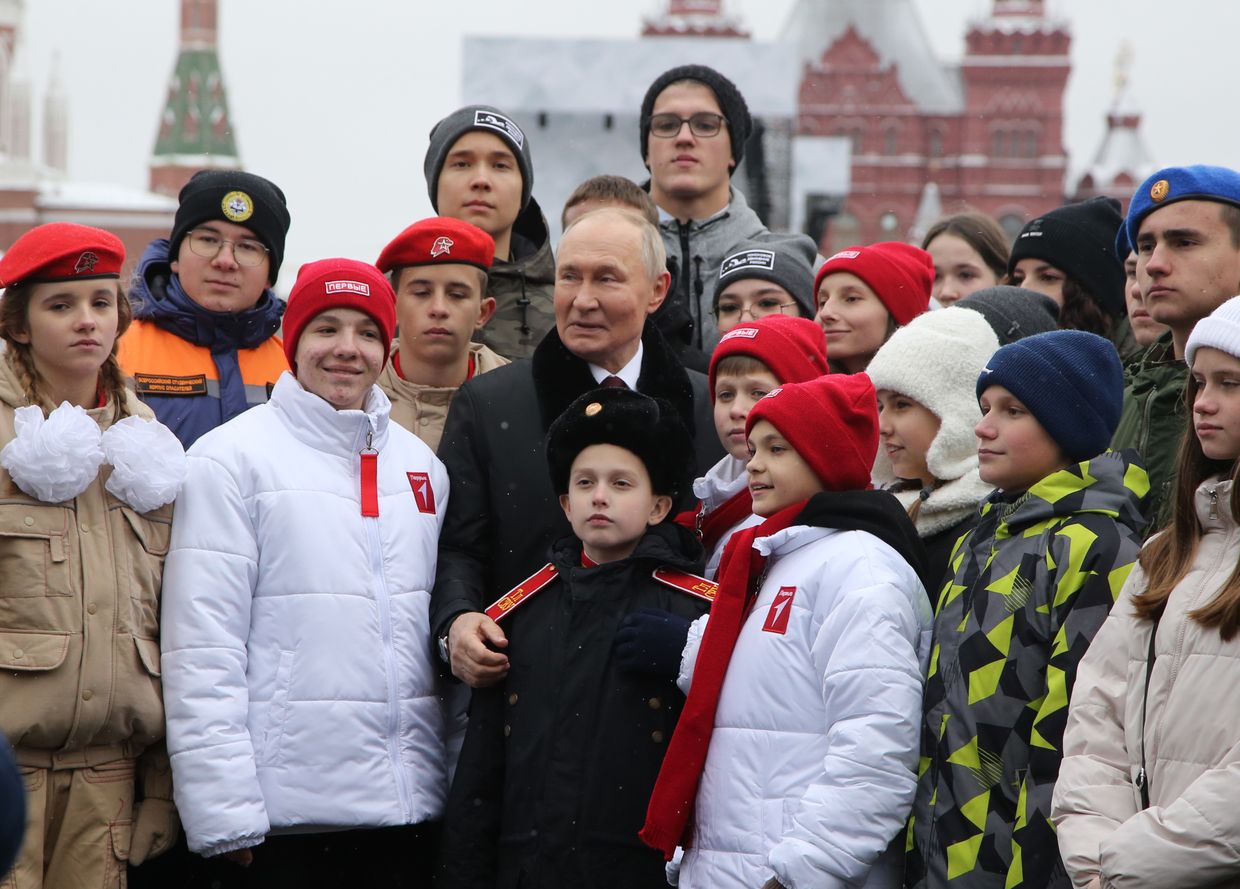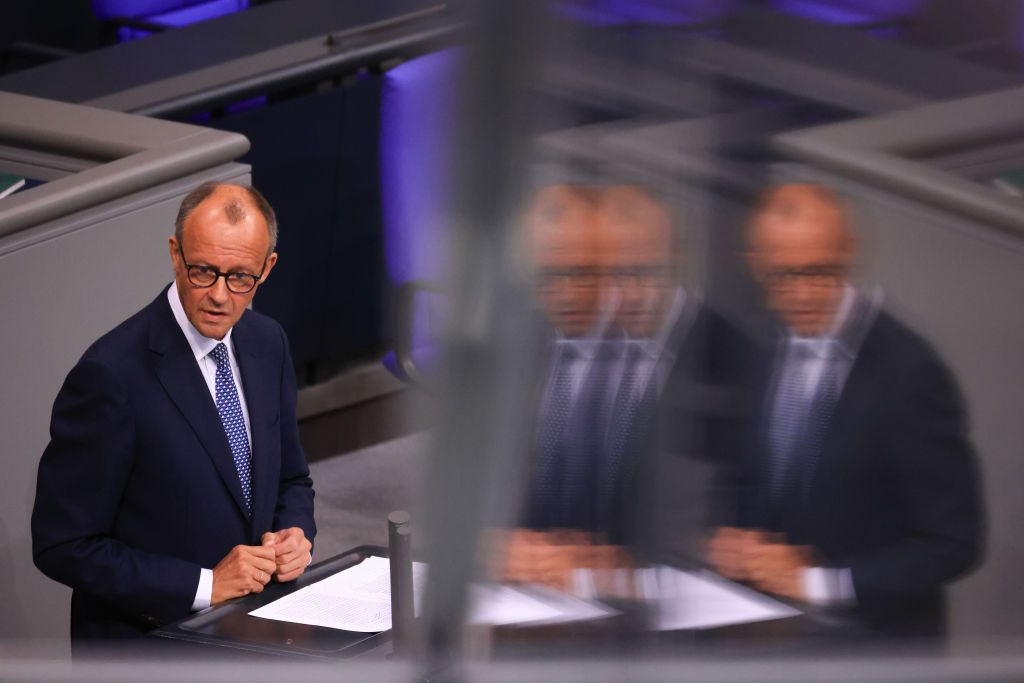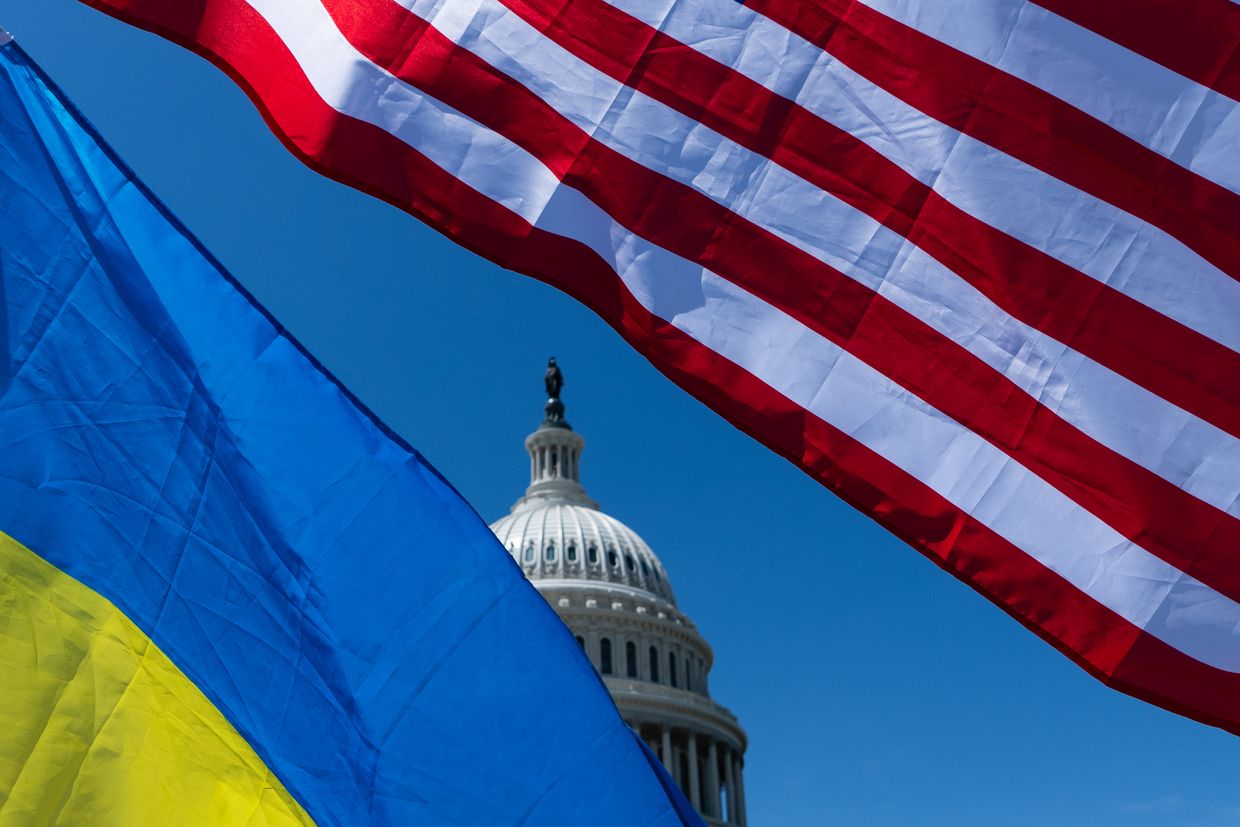Ukraine’s surprise incursion into Kursk Oblast in southwestern Russia helped Kyiv to once again change the narrative of Russia’s invincibility in the war, says retired U.S. Lieutenant General Ben Hodges.
Hodges, who served as commander of the U.S. Army Europe from 2014-2017 and has helped to train Ukrainian soldiers, said the Kursk operation exposed the discord between different Russian forces’ commands and President Vladimir Putin’s personal failure to “protect Russia” — one of the main pillars of his power grip on the country.
Since Aug. 6, when Ukraine entered Kursk Oblast from its northeastern Sumy Oblast, it has gained control over the town of Sudzha and over 1,200 square kilometers (488 square miles) of Russian land. Russian authorities declared a “federal-level” emergency in Kursk and Belgorod Oblasts and ordered mandatory evacuation of some border settlements.
With Ukraine’s first successful large-scale ground operation since the Kharkiv counteroffensive in the fall of 2022, Ukraine showed its army is capable of unexpected and well-coordinated attacks despite suffering from exhaustion in a third year of pushing back at Russia’s full-scale invasion.
But building upon Ukraine’s success in Kursk would require decisive further commitments by Kyiv’s Western allies to “help Ukraine win the war,” both enforcing tighter sanctions against Russia and ensuring uninterrupted flow of military aid to Ukraine, Hodges told the Kyiv Independent in an interview on Aug. 22.
Ukraine “has enough people” to fight, he said, but it is crucial for Ukraine’s leadership to fix the problems with the training, recruiting, and education of military personnel, especially officers and sergeants. With strong Western support, properly trained units will be “the key for Ukrainian victory,” Hodges added.
Editor’s note: This is a transcript of the video interview that has been edited for clarity and brevity.
The Kyiv Independent: We are in a unique moment in this war with the unexpected Ukrainian incursion in Russia. What do you think about this operation?
Ben Hodges: First of all, once again, all of us in the West – and Russia – have underestimated Ukraine. Its ability to put together such a capable force, and to do it in a way that caught Russians by surprise.
The second takeaway is that we don't know and shouldn’t know the official purpose of this “counteroffensive.” The government in Kyiv and the General Staff have done a good job of protecting information. They don't advertise the objectives.
I call it a “counteroffensive” more than an incursion. The goal is to create a bridgehead on the Russian side of the border that denies that area, which Russians could use to launch drones or other attacks against Ukrainian civilians or to build up forces.
The third takeaway for me is the Russian response. They have been incompetent, slow, confused. Fortunately, they were surprised, but they also still have command and control problems.
Who's in charge? Is it the FSB (Federal Security Service)? Is it the Russian General Staff? Is it Rosgvardiya (Russia's National Guard), border forces? This kind of confusion, and the hatred between the different parts of the Russian security forces, has contributed to their slow and uneven response.
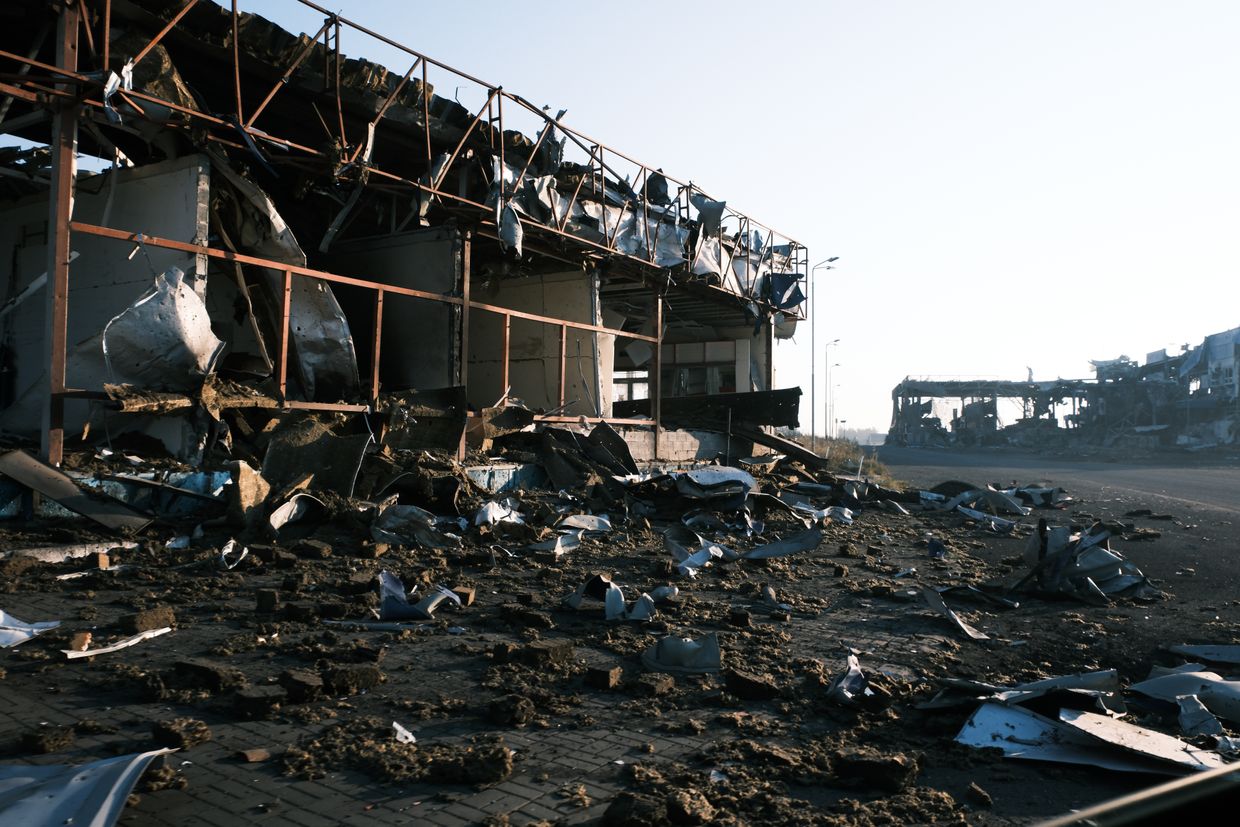
The Kyiv Independent: Do you think Ukraine plans to hold the positions?
Ben Hodges: We don't know the ultimate objective. The duration will depend on what the objective is.
Is it to hold it indefinitely, which means that Ukraine would have to continue putting in forces, building up defenses to protect the borders, and getting enough ammunition? Because, eventually, the Russians will finally get their act together and start applying more and more pressure with different types of strikes.
I think this “counteroffensive” in the direction of Kursk is only one part of a larger multi-domain operation that is intended to change the momentum, to change the narrative of some sort of Russian inevitability.
The Kyiv Independent: All three bridges across the Seim River in Kursk Oblast had been destroyed, cutting off potential retreat ways for some Russian troops. Will they be encircled? Is Ukraine to focus its defenses on the river?
Ben Hodges: I would imagine that they've done this and they've used resources to destroy those bridges in order to achieve either the isolation of Russian forces or to prevent additional reinforcements or logistics. That would be an important, effective step if that's the intention.
The Kyiv Independent: Russian media are downplaying the Ukrainian incursion. Why? What does it tell us about the Russian army and President Putin's grip on power?
Ben Hodges: Because this is a catastrophe for the Kremlin to be caught by surprise like this.
It doesn't match the narrative that they have been pushing. And I think that they called it “a Ukrainian terrorist operation” and put the FSB in charge of the response to fit that narrative.
I think part of the surprise was achieved because the (Russian) General Staff didn't believe what they were seeing. And because of this confused and competing command infrastructure, where the FSB and Russian Armed Forces hate each other. Rosgvardiya is pretty much independent. There's probably incredible amounts of corruption amongst the border forces. All of this is being exposed now.
President Putin has always talked about how he's the only one who can protect Russia. And he's failed.
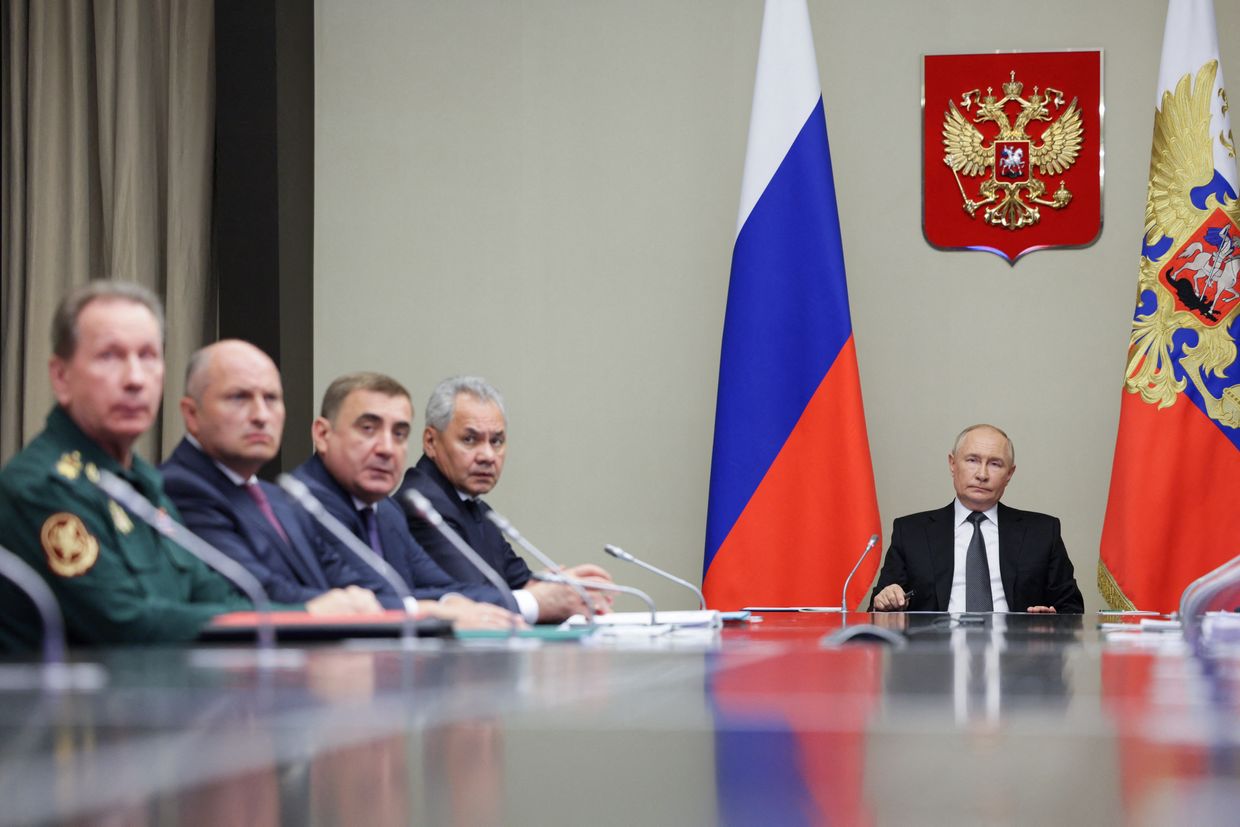
The Kyiv Independent: What do you think helped Ukraine achieve what it has achieved in Kursk so far?
Ben Hodges: Three things. Number one – a very professional secrecy. What we call “operational security” – where you don't share information with people that don't have to know.
Number two – I think they saw there was a place where they could attack, where the defenses on the Russian side were going to be very weak.
And thirdly – it seems to me that Ukraine has also developed capabilities that somehow counter Russian drones. Ukraine is either able to degrade (them) or conceal something, though the Russian surveillance drones should have been able to see a buildup of forces like this.
The Kyiv Independent: Russia continues small but steady advances on the eastern front in Ukraine, in Donetsk and Kharkiv oblasts. It is coming close to the junction town of Pokrovsk, a critical supply line. What do you think about Ukraine's decision to send troops to fight in Russia instead of reinforcing the defenses in the east?
Ben Hodges: People all over Western media are saying, “My God, Pokrovsk!” and “The Russians are advancing.”
I keep a map of Ukraine with me all the time. And I was looking at it yesterday, trying to measure the distance from Avdiivka to Pokrovsk – it's only about 60 kilometers. So in six months, Russia has moved only 60 kilometers, losing thousands of soldiers every week.
It sucks to be the Ukrainian forces there, trying to defend Pokrovsk, especially when you know that ammunition and other things are going into this counteroffensive in the direction of Kursk. But it seems to me that the General Staff has made a calculated risk, which is very appropriate and normal in warfare.
My sense is that the Ukrainian General Staff is less worried about what Russia is doing in the east. This attack in the direction of Kursk is going to eventually achieve a significant effect.
It's too early to tell whether or not forces attacking in the east are going to be drawn away to go to Kursk. I spoke with a person with knowledge yesterday who said it looked like some Russian forces in the area of Zaporizhzhia were being diverted. They would have to go hundreds of kilometers around to try and reinforce once they started moving.
And of course, because the Russian General Staff hates the FSB, they're not in any hurry to divert forces in the east to help the FSB in Kursk.
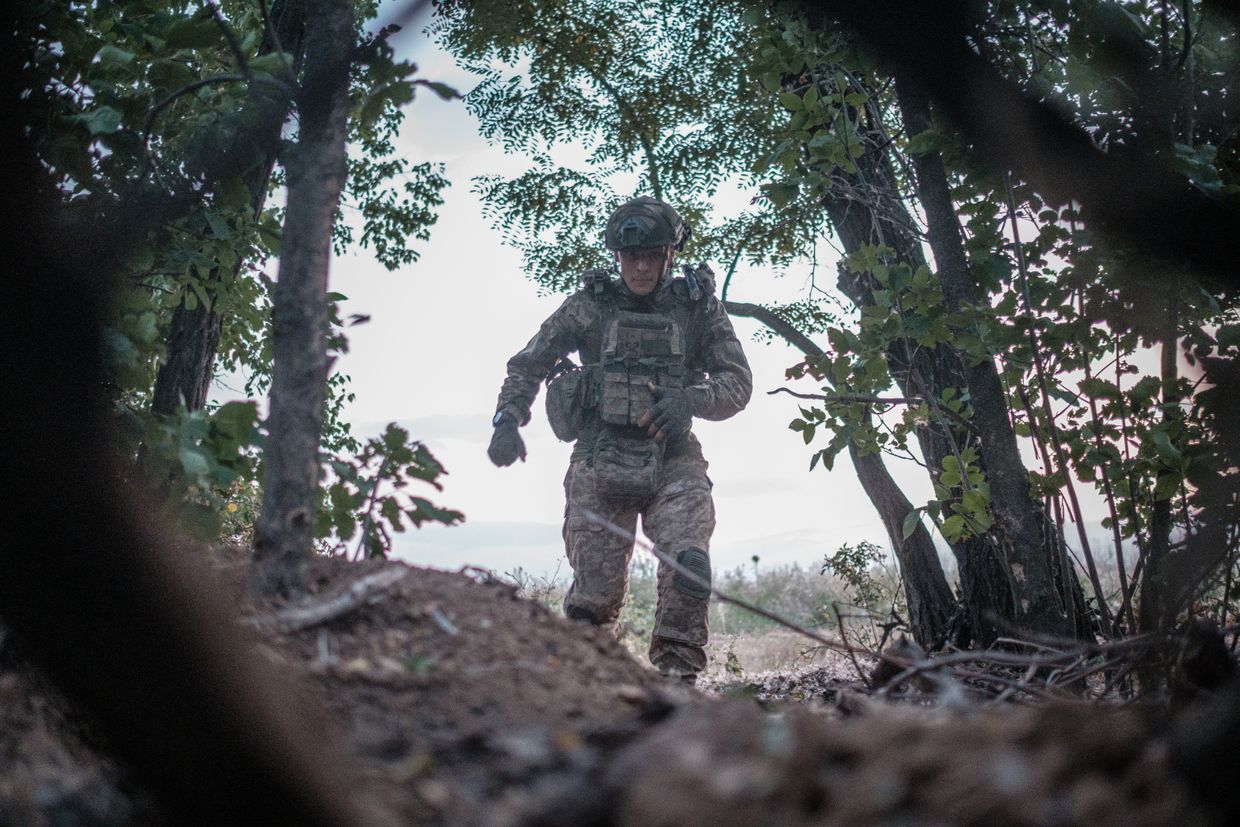
The Kyiv Independent: And with Russian troops reportedly being about 10 kilometers from Pokrovsk now, how do you expect the situation will develop there?
Ben Hodges: If it's 10 kilometers, then that's probably another 10,000 dead Russian soldiers.
Of course, Ukraine does not have enough ammunition, and shame on us that we have not delivered everything that was needed as fast as possible. And I think there's no excuse for it. This has been a failure in the West, from my own government. I'm proud of what the U.S. has done, but we have failed the most important task of committing to helping Ukraine win. Between the U.S., Germany, the U.K., France and other allies, we're not delivering with the sense of urgency that's needed to help Ukraine win.
The Kyiv Independent: Сould you address why Ukraine is so focused on Crimea, continuing to strike military targets there?
Ben Hodges: What's happening in the Kursk direction is part of a multi-domain operation: air, land, sea, cyber, drones, information.
Special forces sabotage, attacking Russia, airfields, air defense, and the Black Sea fleet, which has almost been made irrelevant, going after Russian oil and gas infrastructure, going after Russian transportation infrastructure. All of these are parts of a campaign to eject Russia from Ukrainian territory.
I believe that Crimea is the most important terrain. It is what Russia wanted. Because Crimea gives whoever owns it the ability to control the Black Sea, whether economically or militarily. While I doubt that the Russians care a whole lot about Luhansk, they absolutely care about Crimea.
Ukraine has gone about this the correct way, very methodically, isolating Crimea by destroying approaches to it, destroying the ferries. One day, when they're ready, they will destroy that big Kerch Bridge, and they'll cut the railroad that the Russians have built which goes down along the Azov Sea. That would be isolation. And then Ukraine will take Crimea when it's time.
The Kyiv Independent: How would you assess both Ukrainian and Russian resources to continue fighting? Is something going to change significantly in 2025?
Ben Hodges: First, let's talk about Russia. Sanctions have been effective, but not as effective as they should be because there are still too many gaps. Russia is still able to export oil, using its so-called “shadow fleet,” and sell this oil to India and China. Even if it's below market prices, it still generates income for the Kremlin to continue its war effort.
It also looks like they are in big trouble with people. They've lost so many on the front, plus probably a million young men that are military age have left the country over the past few years. And at some point, they're going to have to mobilize young men that live in the Moscow region and St. Petersburg. I think they've avoided that so far because it will be very, very politically uncomfortable and unpopular. I think they're getting close to having to do that.
On the Ukrainian side – fortunately, the Russian Air Force has been so incompetent, and Ukrainian air defense has been so competent that the Russians have not been able to stop equipment and ammunition coming from Poland into Ukraine. I think that will continue. It does appear to me that Ukraine is rebuilding its own defense industry, even while at war inside the country. A lot of Western companies are helping to do this as well.
My biggest concern for Ukraine is that the recruiting and training base is not what it should be.
Ukraine has enough people. There are probably two million women and men of military age that could be serving. But the government has not yet done a good enough job with recruiting and training.
The Kyiv Independent: If Putin decides to start conscription in Russia on a big scale, do you think it will somehow change the situation and the willingness of Russians to support the war?
Ben Hodges: Well, I think when they start having funerals in Moscow and St. Petersburg, then you could see a mood change.
The Kyiv Independent: Looking at the front-line situation, it doesn't yet look like Russia is running out of the Soviet weapons stockpiles, but some analysts say that it could happen next year. Do you see any signs of that? And how is it going to affect Russia's decision to want to prolong the war?
Ben Hodges: I've been watching, like everyone else, the tanks that are about as old as I am being pulled out of storage, repainted, refurbished, and sent to the front. So I think that Russia probably still has thousands of armored vehicles of different types.
But what makes an armored vehicle effective is not just the thing, it's the crew inside. Are they properly trained? Do they have the best fire control systems, the sights, the night vision devices, the capability to engage targets and hit them at a distance? I don't think that the tanks from the 50’s and 60’s necessarily have that, or that Russia can add these capabilities to all their tanks.
The fact that they're having to import ammunition from North Korea tells me something. The fact that they are depending on parts from China for long-range systems is telling, too.
The Kyiv Independent: Reports suggest that Western military aid for Ukraine is arriving slower, and countries like Germany are cutting their defense spending. Are you worried about the shrinking Western help for Ukraine?
Ben Hodges: I'm most worried about the perception that the Kremlin sees the West losing interest, or energy, or will to keep supporting Ukraine. Because if the Kremlin sees that, they clearly don't care how many of their own soldiers are killed. All they care about is outlasting the West and its support for Ukraine.
The quickest way to bring this war to an end would be for the U.S., Germany and the U.K. governments to say, “It's in our interest that Ukraine defeats Russia, and therefore we're going to do everything necessary to help and make sure that happens.” We have not done that. That's why the Kremlin keeps thinking that it just has to wait – “maybe there'll be President Trump” or “maybe the West will lose interest,” whatever.
The Kyiv Independent: What should be the focus of Western allies at the next Rammstein meeting in September?
Ben Hodges: I think it's the same priorities as always – uninterrupted flow of air defense systems, uninterrupted flow of ammunition that's required. We have to take the handcuffs off of Ukraine, allow Ukraine to use what has already been provided, however they need it.
With this Kursk “counteroffensive,” Ukraine has demonstrated to Russia that all these “red lines” are our “red lines.” And that we deter ourselves. I think it's extremely unlikely that Russia will do anything to escalate – to use a nuclear weapon.
The Kyiv Independent: What are the factors that will define the outcome of the war? What are the strategies of Ukraine and Russia to win the war?
Ben Hodges: For Russia, they will keep going until Putin realizes that he's stopped – that he can't win.
So the principal target for influence is Vladimir Putin. It happens when the President of the United States says, “We're going to help Ukraine win.” Use that word – “win.” And when the German Chancellor and the British Prime Minister say, “We're going to help Ukraine win.” Those would be significant, very powerful words, but of course, backed up by the delivery of what's needed to win.
This war should have ended last year, but the West had not committed to it. So we are where we are now.
Note from the author:
Hello, this is Natalia Yermak, who recorded this interview offering expert analysis of the past weeks of the war. My colleagues who helped to orchestrate this interview are working hard with the rest of the Kyiv independent team to bring you clear facts and informed opinions, as fast as possible. Please consider supporting our reporting.
